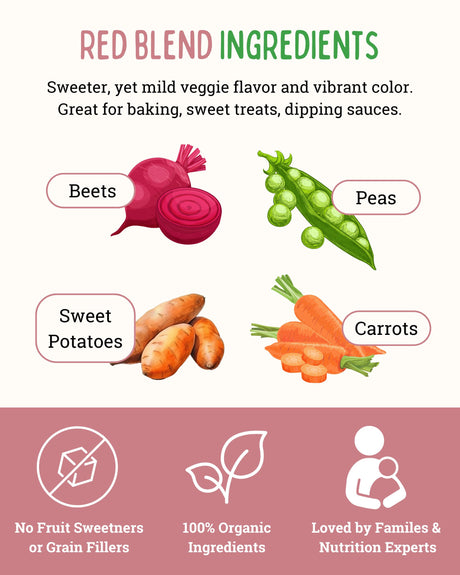Childhood asthma, a common chronic respiratory condition, is characterized by inflammation and narrowing of airways, causing symptoms like chest tightness and shortness of breath.
Nutrition plays a crucial role in managing childhood asthma and can significantly impact the frequency and severity of asthma symptoms. Research has shown that certain dietary factors can either exacerbate or alleviate asthma symptoms, making dietary interventions an essential component of asthma management in children.
In this blog, we will delve into the intricate relationship between nutrition and childhood asthma, examining how dietary choices can influence asthma symptoms and overall respiratory health in children.
We will explore the impact of specific nutrients, foods, and dietary patterns on asthma management, providing practical tips and guidance for parents to support their child's respiratory health through nutrition.
Definition and Symptoms of Childhood Asthma
Childhood asthma is a chronic respiratory condition characterized by inflammation and narrowing of the airways, leading to symptoms such as wheezing, coughing, chest tightness, and shortness of breath.
These symptoms can range from mild to severe and may vary in frequency and intensity from child to child. Asthma symptoms often worsen during physical activity, at night, or in response to specific triggers.
Common Triggers and Causes of Asthma Attacks in Children

Asthma attacks in children can be triggered by various factors, including allergens such as pollen, dust mites, pet dander, and mold. Other common triggers include respiratory infections, exposure to tobacco smoke, air pollution, changes in weather, and certain irritants like strong odors or chemical fumes.
Additionally, emotional stress, physical exertion, and even laughter or crying can sometimes provoke asthma symptoms in children.
Impact of Asthma on Children's Daily Lives
Childhood asthma significantly impacts children's daily lives, limiting their participation in physical activities and school attendance. Effective management is crucial to minimize its impact and ensure active, fulfilling lives.
Exploring the Connection Between Diet and Asthma Symptoms

Nutrition plays a crucial role in managing childhood asthma, as certain dietary factors can influence asthma symptoms and overall respiratory health. Research suggests that a well-balanced diet rich in fruits, vegetables, whole grains, and lean proteins may help reduce inflammation, strengthen the immune system, and improve lung function, thus potentially alleviating asthma symptoms in children.
Nutrients and Foods That May Help Alleviate Asthma Symptoms
Asthma management can benefit from walnuts, which contain potential benefits such as anti-inflammatory properties and vitamin D, which can help reduce airway inflammation and improve lung function.
Foods and Ingredients That May Exacerbate Asthma Symptoms
On the other hand, certain foods and ingredients may trigger or exacerbate asthma symptoms in susceptible individuals. Common culprits include highly processed foods, sugary beverages, and foods high in saturated fats and trans fats.
Additionally, some children with asthma may be sensitive to specific allergens or food additives, such as sulfites, preservatives, and artificial colors or flavors, which can trigger asthma symptoms or allergic reactions. Identifying and avoiding these potential triggers can help manage asthma more effectively and reduce the risk of asthma attacks.
Vitamin D and Its Role in Immune Function and Asthma Management
Asthma management is significantly influenced by the intake of vitamin D, which plays a crucial role in immune function and lung function. However, asthma patients may have lower levels due to factors like limited outdoor activity and dietary habits.
Omega-3 Fatty Acids and Their Anti-inflammatory Properties
Asthma management can be improved by incorporating omega-3 fatty acids, particularly eicosapentaenoic acid and docosahexaenoic acid, into children's diets, which can reduce airway inflammation, improve lung function, and decrease asthma symptoms.
Antioxidants Such as Vitamin C and Vitamin E in Reducing Oxidative Stress
Asthma is a common condition characterized by symptoms and exacerbations. Vitamin C and E, powerful antioxidants, are essential for managing asthma. Vitamin C, found in citrus fruits, has been linked to improved lung function and reduced asthma symptoms in children, while vitamin E protects against airway inflammation.
Fruits and Vegetables Rich in Antioxidants and Vitamins
Vitamin E, vitamin C, and citrus fruits are essential for respiratory health and asthma management. These colorful fruits and vegetables provide essential vitamins and minerals, contribute to overall immune function, and are rich in antioxidants.
Sources of Omega-3 Fatty Acids, Such as Fatty Fish and Flaxseeds
Fatty fish and seeds play a crucial role in children's diets, providing essential omega-3s that reduce airway inflammation and improve lung function. Incorporating these foods into meals and snacks can support respiratory health and contribute to asthma management in children.
Whole Grains and Fiber-Rich Foods for Overall Health and Immunity
Important components of an asthma-friendly diet include whole grains and fiber-rich foods. These foods support overall health, immunity, and digestive function, regulating blood sugar levels and promoting a healthy gut microbiome. Incorporating these foods into children's meals can help manage asthma symptoms.
Potential Asthma Triggers, such as Processed Foods and Food Additives
Asthma symptoms and allergic reactions in children are linked to processed foods, which contain high levels of preservatives, artificial colors, and flavors. Limiting intake and carefully reading ingredient labels can help identify and avoid potential asthma triggers, supporting better respiratory health.
Common Allergens like Dairy, Eggs, and Peanuts that May Exacerbate Symptoms
Asthma can be triggered by common allergens like dairy products, eggs, peanuts, and tree nuts. These foods can cause allergic reactions and worsen asthma symptoms in susceptible individuals. It's crucial to work with healthcare providers to identify and manage these allergens, as dietary modifications can improve respiratory outcomes.
Strategies for Identifying and Managing Food Sensitivities in Children with Asthma
Asthma symptoms in children can be exacerbated by food sensitivities, which can lead to digestive discomfort and inflammation. Identifying and managing these sensitivities can improve overall well-being and reduce the risk of developing asthma. Elimination diets, supervised by healthcare providers, can help pinpoint problematic foods.
Meal Planning and Preparation Strategies for an Asthma-Friendly Diet
Planning a whole, asthma-friendly diet for children involves incorporating nutrient-rich foods like fruits, vegetables, whole grains, lean proteins, and healthy fats. Home-prepared meals with fresh ingredients reduce exposure to asthma triggers. Batch cooking and weekend prepping ensure nutritious options are readily available.
Encouraging Children to Eat a Variety of Nutritious Foods
Whole and vegetables are essential nutrient-rich foods for children, as they provide essential vitamins, minerals, and flavor. Parents should introduce children to these foods from an early age, promoting a balanced diet and fostering positive attitudes towards food and nutrition.
Creating a Supportive and Positive Eating Environment
Children with asthma can develop healthy eating habits by creating a positive eating environment at home. Offering a variety of nutritious options and minimizing distractions can help reduce stress and anxiety. Celebrating small victories and successes can reinforce positive eating habits and support overall well-being.
Importance of Regular Physical Activity and Exercise for Children with Asthma

Children with asthma benefit from a variety of physical activities, including exercise, to manage their condition. While parents may worry about exercise-induced symptoms, it can improve lung function, strengthen respiratory muscles, and enhance overall fitness.
Consult with their healthcare provider to develop a personalized asthma action plan and identify necessary modifications.
Strategies for Reducing Exposure to Environmental Triggers
Children with asthma can be significantly affected by exposure to environmental triggers, which can be managed by implementing smoke-free policies, regular cleaning, allergen-proof bedding, and investing in high-efficiency air purifiers to create a healthier environment and reduce asthma symptoms.
Stress Management Techniques for Both Children and Parents
Children with asthma can benefit from stress management techniques like deep breathing exercises, mindfulness, and relaxation. Parents can model healthy coping strategies and provide emotional support. Open communication and seeking support from healthcare providers, counselors, or support groups can help children cope with asthma-related stressors.
Collaboration with Pediatricians and Allergists to Develop a Personalized Asthma Management Plan
Healthcare providers play a crucial role in managing asthma, providing personalized treatment plans and guidance on medication management, asthma triggers, and lifestyle modifications. Regular follow-up appointments and communication with providers are essential for monitoring asthma control and adjusting treatment strategies as needed. By working closely with providers, parents can optimize their child's respiratory health and manage asthma effectively.
Monitoring and Tracking Dietary Changes and Asthma Symptoms
Keep track of dietary changes and asthma symptoms to identify potential triggers and monitor the effectiveness of dietary interventions in managing childhood asthma.
Record daily food intake, asthma symptoms, and respiratory health changes in a food diary or journal. Pay attention to patterns and correlations between specific foods and asthma exacerbations. Share this information with healthcare providers for informed treatment decisions.
Seeking Guidance from Registered Dietitians or Nutritionists Specializing in Pediatric Asthma
A registered dietitian specializing in pediatric asthma can provide valuable support and guidance for managing asthma through nutrition. They can assess dietary intake, identify potential deficiencies, and develop a personalized nutrition plan.
They can also offer practical tips for incorporating asthma-friendly foods and navigating food-related challenges. Collaborating with a registered dietitian empowers parents to make informed decisions about their child's nutrition and respiratory health.
Summary

In this blog, we've explored the important relationship between childhood asthma and nutrition, recognizing the impact that dietary choices can have on managing asthma symptoms and supporting respiratory health in children. We've discussed the definition and prevalence of childhood asthma, common triggers and causes, as well as the impact of asthma on children's daily lives and activities.
Importance of a Balanced Diet and Healthy Lifestyle
Reducing asthma symptoms requires a balanced diet rich in essential nutrients like vitamin D, omega-3 fatty acids, and antioxidants. Incorporating asthma-friendly foods like fruits, vegetables, fatty fish, and whole grains can support respiratory health and minimize exacerbations. Promoting a healthy lifestyle, regular physical activity, stress management, and reducing environmental triggers also contributes to asthma management.
Working with Healthcare Providers and Making Informed Dietary Choices
Collaborating with pediatricians, allergists, and registered dietitians can provide valuable support and guidance for parents seeking to optimize their child's asthma management through nutrition. By monitoring dietary changes and asthma symptoms, seeking professional guidance, and making informed dietary choices, parents can empower themselves to take proactive steps in supporting their child's respiratory health.
Remember, every child is unique, and finding the right balance of dietary and lifestyle factors may require patience, persistence, and ongoing communication with healthcare providers.
Encouragement for Parents to Take Action
As parents, you play a crucial role in supporting your child's respiratory health and overall well-being. By prioritizing a balanced diet, healthy lifestyle habits, and effective communication with healthcare providers, you can help manage your child's asthma symptoms and promote optimal respiratory function.
Stay proactive, stay informed, and remember that you're not alone in this journey. With the right knowledge, support, and dedication, you can empower your child to thrive despite the challenges of childhood asthma.
Leave your comments below; we love to hear from you! And don't forget to follow EasyPeasie for more veggie info and convo on YouTube, Facebook, and Instagram! ~ThePeas













